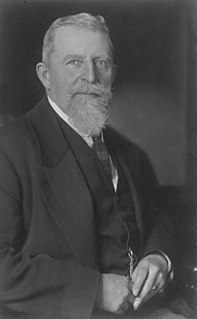
The Dębczyn culture is an archeological culture in Pomerania from the third to sixth centuries. It was derived from the neighboring Wielbark culture with influences from the Elbe region. The culture was superseded as the result of the later migrations of West Slavs, in particular of the Pomeranians.
Germanische Altertumskunde Online, formerly called Reallexikon der Germanischen Altertumskunde, is a German encyclopedia of the study of Germanic history and cultures, as well as the cultures that were in close contact with them.

Rudolf Simek is an Austrian philologist and religious studies scholar who is Professor and Chair of Ancient German and Nordic Studies at the University of Bonn. Simek specializes in Germanic studies, and is the author of several notable works on Germanic religion and mythology, Germanic peoples, Vikings, Old Norse literature, and the culture of Medieval Europe.

Rudolf Much was an Austrian philologist and historian who specialized in Germanic studies. Much was Professor and Chair of Germanic Linguistic History and Germanic Antiquity at the University of Vienna, during which he tutored generations of students and published a number of influential works, some of which have remained standard works up to the present day.

After the glaciers of the Ice Age in the Early Stone Age withdrew from the area, which since about 1000 AD is called Pomerania, in what are now northern Germany and Poland, they left a tundra. First humans appeared, hunting reindeer in the summer. A climate change in 8000 BC allowed hunters and foragers of the Ertebølle-Ellerbek culture to continuously inhabit the area. These people became influenced by farmers of the Linear Pottery culture who settled in southern Pomerania. The hunters of the Ertebølle-Ellerbek culture became farmers of the Funnelbeaker culture in 3000 BC. The Havelland culture dominated in the Uckermark from 2500 to 2000 BC. In 2400 BC, the Corded Ware culture reached Pomerania and introduced the domestic horse. Both Linear Pottery and Corded Ware culture have been associated with Indo-Europeans. Except for Western Pomerania, the Funnelbeaker culture was replaced by the Globular Amphora culture a thousand years later.
The Gustow group is an archaeological culture of the Roman Iron Age in Western Pomerania. The Gustow group is associated with the Germanic tribe of the Rugii.

Gustav Neckel was a German philologist who specialized in Germanic studies.

The Læborg or Laeborg Runestone, listed as DR 26 in the Rundata catalog, is a Viking Age memorial runestone located outside of the village hall or Forsamlinghus in Læborg, which is about 3 kilometers north of Vejen, Denmark. The stone includes two depictions of the hammer of the Norse pagan god Thor.
Robert Nedoma is an Austrian philologist who is Professor at Department for Scandinavian Studies at the University of Vienna. He specializes in Germanic studies.
Sebastian Brather is a German medieval archaeologist and co-editor of Germanische Altertumskunde Online.

Hermann Reichert is an Austrian philologist at the University of Vienna who specializes in Germanic studies.

Heinrich Beck was a German philologist who specialized in Germanic studies. A Professor of Ancient German and Nordic Studies at Saarland University and later the University of Bonn, Beck was a co-editor of the second edition of Reallexikon der Germanischen Altertumskunde and one of the world's leading experts on early Germanic culture.
Wilhelm Heizmann is a German philologist who is Professor and Chair of the Institute for Nordic Philology at the University of Munich. Heizmann specializes in Germanic studies, and is a co-editor of the Germanische Altertumskunde Online.

Otto Gschwantler was an Austrian philologist who was head of the Institute for Germanic Studies at the University of Vienna. He specialized in the study of early Germanic literature.

Franz Rolf Schröder, often referred to as F. R. Schröder, was a German philologist who was Professor and Chair of German Philology at the University of Würzburg. He specialized in the study German and early Germanic literature, and Germanic and Indo-European religion. He was for many decades editor of the Germanisch-Romanische Monatsschrift.

René Lodewijk Maurits Derolez was a Belgian philologist who was Professor of English and Germanic Philology at Ghent University. He specialized in runology and the study of Old English literature and Germanic religion.
Thomas Birkmann is a German philologist who specializes in Germanic studies.
Astrid van Nahl is a German philologist, writer and editor who specializes in Scandinavian studies
Benjamin Sigmund Oehrl is a German archaeologist and philologist who specializes in Germanic studies.

Hans-Peter Naumann was a German philologist who specialized in Germanic studies.
This page is based on this
Wikipedia article Text is available under the
CC BY-SA 4.0 license; additional terms may apply.
Images, videos and audio are available under their respective licenses.












